The content of the article
Every pet that a person takes under guardianship needs to be loved, cared for, pampered and cared for as best as possible if the pet suddenly falls ill, or experiences a certain period of moral oppression due to a change of residence. There are also situations when pets can eat what they are not supposed to eat, which can cause food poisoning. Not rarely, animals with poisoning by rat poison come to veterinary clinics, while not every cat can be saved. In order to know exactly how to help an animal, it is necessary to have an idea about the existing external signs and the clinical picture in case of poisoning in cats.
Causes and possible situations
Cat poisoning with rat yal can occur in several ways: the direct route is when the animal consumed the poison itself, and indirectly by eating an infected product or an animal who died from rat poison. In turn, direct infection most often occurs because the enviable majority of poisonous baits for rodents have a pleasant taste, thanks to which they become very attractive both directly to pests and to pets. The second method of infection, indirect, more common, since the rodent infected with rat poison, loses its strength and speed, and, consequently, is an easy prey for cats.
Many modern poisons contain enough toxins not only to destroy the small rodent, but also to irreparably harm the body much more than a rat or mouse. Absolutely all the rat-poison-based rodent poison killers manufactured today have special toxic substances in their composition - rodenticides, which may contain such active components as coumarin, indandion or other toxins that have a detrimental effect on the animal.However, the majority of poisoning is due to the use of anticoagulant rodenticide, therefore, it is necessary to consider more carefully what is this substance. Anticoagulant is a chemical that adversely affects blood clotting and prevents it from stopping during bleeding. The poison anticoagulant incorporates various types of coumarin, such as warfarin, brodifacum, zoo coumarin, flumukafen, bromadiolone, cumatetraral.
What is the danger?
Rat poison is an incredibly big threat to pets, because it stops blood clotting, as a result of which the animal quickly dies.
It is those people who have a cat, most often faced with poisoning animal rat poison, especially if they live in the private sector. This is justified by the fact that cats are very curious animals, and therefore it is common for them to try everything that can attract them by smell or appearance. The risk of cat death from rat poison is especially increased if a neighbor of retirement age lives next door, which frankly dislikes all animals without exception.Even more aggravated the situation may be her attitude towards her garden or front garden, which, in her opinion, is spoiled by unwanted animals by her endless unannounced visits, and tasting of planted flowers or vegetables. In short, if there is such an old and mischievous neighbor next door, the cat is almost one hundred percent doomed to death. But besides the unfriendly neighbors, a pet can be faced with various threats to life, for example, the corpses of rodents poisoned with poison, which can also be eaten by curious cats.
When rat poison enters the stomach, it begins to gradually dissolve and be absorbed, with the destruction of the walls of the capillaries and disrupting the production of vitamin K, which is essential for blood clotting. These violations in the body lead to the death of the animal from heavy bleeding from all possible holes in the body, as well as internal hemorrhage in the abdominal cavity and brain.
Clinical picture
The manifestation of symptoms of poisoning does not occur immediately, especially if the composition of rat poison were rodenticides or anticoagulants.In most cases, the manifestation of symptoms occurs within three to five days from the moment of poisoning of the animal. Usually, until the cat appears, it can feel quite normal at the expense of the body’s internal reserves of vitamin K. Regardless of how exactly rat poison hit the animal’s body directly, by eating an infected rodent or bait for mice, the poison will affect the body equally. .
Usually poisoning with rat poison in cats occurs:
- lethargy;
- anemia of the mucous membranes;
- complete refusal to eat;
- strong fever;
- abundant internal / external hemorrhage;
- neurological disorders;
- vomit mixed with blood;
- loose stools with blood;
- hematomas;
- shortness of breath;
- tachycardia;
- convulsions.
If the poisoning of a pet has occurred with such serious rodenticides like zinc phosphide or strychnine, then signs of contact with the body appear almost instantly in the form of lethargy, vomiting, anorexia, seizures, and hypertonus of the paws.
Also in the rat poison is often present the content of various chemical elements,the rate of development and the level of severity of damage to the body of toxic substances directly depend on the concentration and presence in the composition of which. Consequently, the period of observation of signs of poisoning by rat poison can also be different and varies from a few days to a couple of weeks. But, if the poison turns out to be too concentrated and potent, then it’s more likely that the owner of the animal will not be able to expect that his cat will survive.
First Aid - What a Host Should Do
If the pet owner notices the first signs of the symptoms of poisoning, he should immediately take the animal to the veterinarian to provide the necessary medical care. When the owner of the circumstances so that he can not quickly deliver the poisoned animal to the clinic, he must necessarily give first aid to the cat and alleviate the suffering of the pet.
The first thing that should be done in case of suspicion of poisoning is to induce a gag reflex in a cat, since it will help free the body from possible remnants of rat poison, at least those that have not yet absorbed into the blood.In order to achieve vomiting, you should give the cat as much as possible to drink, or otpit it with a three-percent solution of hydrogen peroxide, usually the amount of peroxide is calculated on one teaspoon for every five kilograms of body weight of the pet.
What to do in case of poisoning the cat with rat poison?
If the cat was poisoned by rat poison - in order to facilitate the process of its rescue, it would be very nice to know the name of the poison - what kind of poison entered the animal's body. A preserved package, which must be provided to the doctor during the examination of the animal, will be very helpful in this situation.
When the owner discovers that his pet has poisoned himself with rat poison, he needs to do the following:
- First of all, it is necessary to induce vomiting of the animal to cleanse the stomach of residues of the poisonous substance. Due to vomiting, the likelihood that the poison is fully absorbed and spread throughout the body will be reduced. You can induce gagging in several ways: syrup from the emetic root at a dosage of four millimeters for a medium-sized cat or three percent hydrogen peroxide.Also, sometimes you can give your pet plenty of boiled water and press your finger on the root of his tongue in order to cause an emetic urge. However, the latter method will be effective only if it is performed immediately after the animals receive the rat poison. The induction of vomiting after three hours from the moment the toxin was ingested into the body is simply meaningless, because during this period the rat poison has already been fully absorbed into the blood of the animal.
- In addition to cleaning the stomach from the remnants of poison, you should definitely give the animal some absorbent drug, regardless of whether the pet is pulled out or not. Usually, activated carbon is used as an absorbent drug, it is also possible to use other drugs for intoxication.
- After cleansing the body with absorbing drugs, it is necessary to give the animal an antidote so that the blood clotting process is restored in the body, injective administration of vitamin K is also necessary.
Diagnosis and treatment
Rehabilitation therapy is an animal intake of vitamin K1 in the form of tablets. The basis for the termination of the course of medical therapy becomes trial cancellation of the drug for some time and control blood sampling for clotting tests. How quickly the recovery process can take place, and whether recovery is possible at all, will directly depend on what type of rat poison and in what quantity has entered the body of the animal. Also of great importance is how quickly the poisoning was diagnosed, and whether the correct treatment was prescribed. If circumstances are relatively favorable, the chance of a full recovery is 83%.However, in most cases, unfortunately, the situation is somewhat different due to the untimely access to a veterinarian or the absence of an antidote. Cases of death from poisoning with rat poison are quite common.
Cat care
During the first days after the toxin enters the body, the cat should be given only water. Then you can transfer it to a special diet in the form of:
- Boiled lean meat or fish (these foods must be frozen beforehand).
- Boiled chicken or calf liver (pork can not, because it is considered too fat).
- Boiled vegetables in a small amount - you can pereblender them with minced meat.
- Oatmeal or rice porridge in a small amount.
The owner needs to be prepared for the fact that the pet may not have an appetite for a long time. It is impossible to force a cat under any circumstances; it is better to seek help from a veterinarian.
Video: first aid for cat poisoning

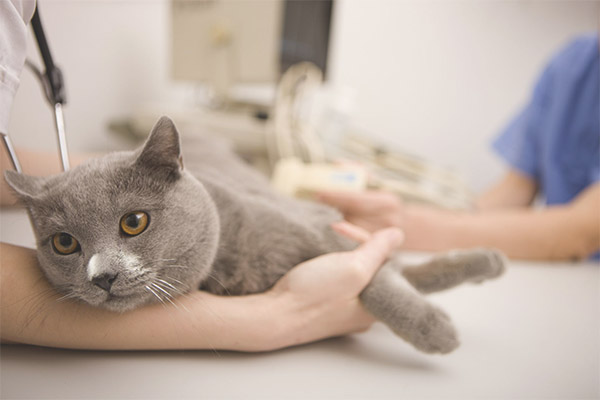
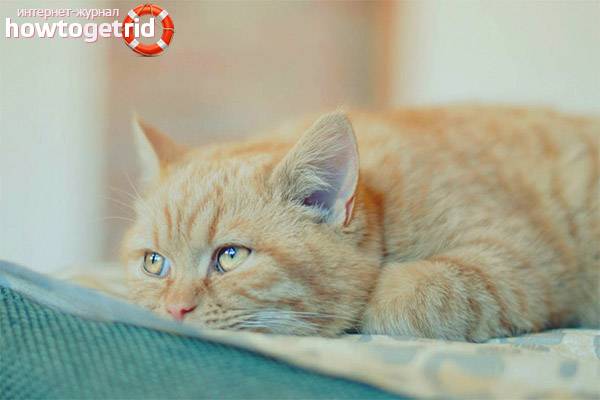

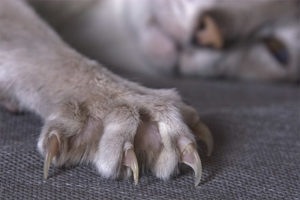
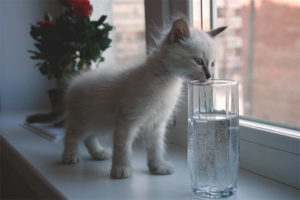
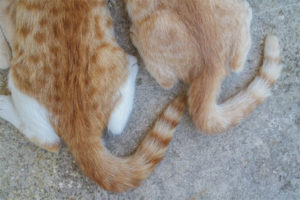

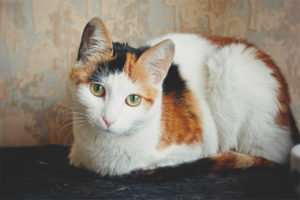
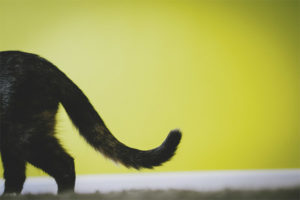
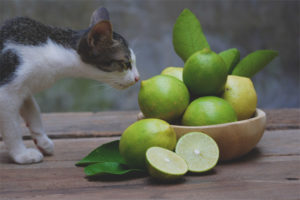

To send